Pinnacle Group has transformed its customer experience and increased operational efficiency following the implementation of the latest field service management software from BigChange.
ARCHIVE FOR THE ‘emea’ CATEGORY
Jan 19, 2022 • News • BigChange • Digital Transformation • field service management • Service CRM • EMEA • COMPLETE SHUTTER SERVICES
Pinnacle Group has transformed its customer experience and increased operational efficiency following the implementation of the latest field service management software from BigChange.Supporting over 300,000 homes, 200 schools and 100 public and private buildings, Pinnacle is one of the UK’s largest facilities management providers. Using BigChange, Pinnacle has achieved a significant improvement in transparency and communication with clients by delivering live operational information and has overcome challenges resulting from the pandemic which saw a reduced workforce facing an increased workload.
USING BIGCHANGE'S FIELD SERVICE SOFTWARE, PINNACLE CAN RECORD, MONITOR AND CONTROL EVERY TASK IN REAL-TIME
“Since implementing BigChange we have seen real time savings and productivity gains resulting in better quality of service, reduced resources and costs, and increased client and customer satisfaction,” commented Raaj Bharania, Pinnacle Group Business Manager. “This can be directly translated into contract extensions and new contract awards.”
Pinnacle is a community-facing, people-first business that delivers, manages and maintains communities and places – including multi-tenure housing, schools, open spaces, public and private buildings, retail schemes, distribution centres, manufacturing plants, utilities and broadband networks – as well as a range of complementary employment and wellbeing outcomes. Formed in 1994, Pinnacle operates nationwide with major hubs in London, Chelmsford, Slough, Birmingham, Leeds, Morecambe, Stoke and Carlisle. Pinnacle provides integrated Facilities Management across all sectors and the frontline operation makes around 1,400 call outs per day with an 80/20 split between scheduled and reactive.
Since implementing the complete job management solution, which incorporates customer relationship management (CRM), job scheduling, live tracking, field resource management, financial management and business intelligence in one simple to use and easy to integrate platform, Pinnacle can record, monitor and control every task in real-time. Details of site inspections and service delivery visits are captured, recorded and reported, complete with before and after photos, using a traffic light system allowing operatives to self-certify works.
“By giving clients access to the BigChange platform we have been able to reduce the time spent monitoring and reporting as they can access the information they need when they need it,” said Area Manager Marcin Rosiak whilst Business Manager Seundouss Laroussi added, “BigChange has been transformational for us, and our clients, and we cannot imagine our operation without it!”
BigChange has already been deployed on over 90 percent of Pinnacles soft FM contracts where it has been tailored to meet specific KPIs, SLAs and reporting requirements and roll out on the remaining 10 percent is ongoing. Further planned work includes the transition to a completely paperless operation and the use of BigChange to improve workforce engagement and health and safety management.
Further Reading:
- Read more about Digital Transformation @ www.fieldservicenews.com/digital-transformation
- Read more about Field Service Management @ www.fieldservicenews.com/field-service-management
- Read more about BigChange on Field Service News @ www.fieldservicenews.com/bigchange
- Learn more about BigChange @ www.bigchange.com
- Find out more about Pinnacle Group @ www.pinnaclegroup.co.uk
- Follow BigChange on Twitter @ twitter.com/bigchangeapps
Jan 14, 2022 • Fleet Technology • News • fleet management • Sustainability • Webfleet Solutions • Service Innovation and Design • EMEA
Three-quarters (74 per cent) of UK fleets have adopted more digital solutions since the start of the COVID-19 pandemic, new research has revealed.
Three-quarters (74 per cent) of UK fleets have adopted more digital solutions since the start of the COVID-19 pandemic, new research has revealed.
A pan-European study conducted by Webfleet Solutions among 1,050 fleet decision-makers found that in the UK, smaller fleets of up to 50 vehicles led the charge, accounting for 80 per cent of the tech adopters.
SME BUSINESSES HAVE RECOGNIZED THE VITAL ROLE THAT TECHNOLOGY CAN PLAY IN OVERCOMING THE FINANCIAL AND LOGISTICAL CHALLENGES
Electronic signature tech (60 per cent) topped the list of the new digital solutions, followed by mobile apps (50 per cent) and digital document systems, such as paperless invoicing (44 per cent). In every case, the uptick in digitisation was found to have helped their businesses deal with the pandemic.
“COVID-19 continues to have a dramatic impact on the way we live and work, making operational flexibility, smart customer interactions, risk management and cost control more important than ever,” said Beverley Wise, Sales Director UK and Ireland, Webfleet Solutions.
“SME businesses, in particular, have had the agility to respond quickly to the ever-changing commercial landscape and have recognised the vital role that technology can play in overcoming the financial and logistical challenges – improving the efficient flow of information, supporting remote working and minimising person-to-person interactions.”
Indeed, the drive to increase efficiency was found to be top reason for UK fleets adopting more digital solutions, cited by more than half (55 per cent) of those surveyed. This was closely followed by efforts to reduce the spread of infection (51 per cent) and a continued commitment to sustainability (49 per cent).
Of those that haven’t adopted more digital solutions, 28 per cent cited cost as a barrier, 28 per cent said they had enough in place, while 22 per cent said they lacked the time or resources to implement new systems.
The Netherlands led the digitisation trend with 85 per cent adopting new digital solutions, followed by Italy and Spain (both 77 per cent).
For an overview of the findings, download the infographic here.
Further Reading:
- Read more about Digital Transformation @ www.fieldservicenews.com/service-innovation-and-design
- Read more about Fleet Technology @ www.fieldservicenews.com/fleet-technology
- Learn more about Webfleet Solutions @ www.webfleet.com
- Read more about Webfleet Solutions on FSN @ www.fieldservicenews.com/webfleet-solutions
- Follow WebFleet Solutions on Twitter @ twitter.com/Webfleetnews
Jan 12, 2022 • News • construction • Volvo Construction • Sustainability • ABAX • Service Innovation and Design • EMEA
The construction sector accounts for a significant amount of CO2 emissions worldwide, and is still far behind in the green transition.
The construction sector accounts for a significant amount of CO2 emissions worldwide, and is still far behind in the green transition. With all Volvo machines now available in ABAX Smart Connect, the digitalisation of the industry can accelerate and help reduce climate emissions - using technology that is already installed and ready for use.
CHEAPER SOLUTIONS OVER SUSTAINABLE
A new report conducted by Ramirent* in Sweden shows that cheap alternatives are often chosen in favour of sustainable solutions, even though the cheap alternatives rarely prove to be cost-saving. With the right sustainability measures, which can be easily implemented, climate emissions from the construction industry can be drastically reduced.
TOP FOUR LEADING HEAVY EQUIPMENT MANUFACTURES AVAILABLE
ABAX is a telematics company that has minimised the digital threshold for the construction industry. With ABAX Smart Connect, they have made it easier for fleet owners to be aware of their emissions.
The top leading manufacturers** such as Catepillar, Hitachi and John Deere are already connected to ABAX Smart Connect. When Volvo now joins, the service will be available for a significant number of machine fleets worldwide. Through ABAX Smart Connect, construction companies receive ongoing status updates on their machines. In practice, this means greater control of unnecessary operating and service costs, and a daily status update on consumption and compilation of CO2 footprints. The technology is already installed in all Volvo machines, and the only thing required to use the digital tool is a connection to ABAX Smart Connect.
Volvo is a significant supplier of machines to the Scandinavian market. The opportunity to be able to connect to technology that is already installed in Volvo's machines will enable major gains for both the environment and costs. We must all take responsibility and take advantage of the development opportunities that exist, not least in an industry with a major impact on society. We want to inspire others in the industry to make a difference and expand their digital services, says Paul Walsh, CTO of ABAX.
According to the Paris Agreement, today's emissions of greenhouse gases will be reduced by 40 % by 2030. Emissions from the construction industry have a direct impact on how all of the individual countries will contribute to the common goal for the EU. A prominent method of improvement is digitisation.
Further Reading:
- Read more about Service Innovation and Design @ www.fieldservicenews.com/service-innovation-and-design
- Read more about Sustainability on Field Service News @ www.fieldservicenews.com/automation
- Read more about Volvo CE on Field Service News @ www.fieldservicenews.com/topcon
- Find out more more about Volvo CE @ www.volvoce.com
- Learn more about ABAX @ www.abax.com
- Follow ABAX on Twitter @ twitter.com/ABAXUK
Jan 11, 2022 • News • Electric Vehicles • fleet management • Sustainability • UK • Service Innovation and Design • EMEA • VIMCAR
A new report from Vimcar, the fleet management provider for SMEs, reveals that the majority of petrol and diesel fleet cars on the roads in the UK and Europe could be switched to electric vehicles.
A new report from Vimcar, the fleet management provider for SMEs, reveals that the majority of petrol and diesel fleet cars on the roads in the UK and Europe could be switched to electric vehicles.From analysis of over 67,000 company fleet vehicles, the findings take into account the average distance fleet vehicles are travelling, compared to the mileage range on electric vehicles.
87% of companies said that the mileage range of electric vehicles is the main concern when considering whether or not they should make the switch to electric. However, the data suggests that mileage range is only an imagined obstacle in fleet electrification and that despite popular beliefs, most companies are in fact able to use electric vehicles without impacting the level of fleet usage. Currently, only 3% of fleet vehicles are run on electric or hybrid engines.
DATA ANALYSIS FROM ACROSS THE UK AND EUROPE REVEALS THAT MAJORITY OF FLEETS CURRENTLY ON THE ROAD COULD BE REPLACED WITH ELECTRIC VEHICLES WITH MINIMAL DISRUPTION TO PERFORMANCE
At a time when many businesses (96%) are beginning to increase their stock and delivery offerings in the run up to Christmas, there are calls for businesses to re-evaluate their current systems to ensure they are being as eco-friendly as possible in the process.
Sami Eric, UK Country Manager at Vimcar said: “With the recent discussions held at COP26, there is no hiding the fact that we all need to be doing more to reduce our carbon footprint. One of the biggest changes businesses can make is the switch from petrol or diesel vehicles, to electric or hybrid. Unfortunately, there is often negativity associated with electric vehicle usage, and the efficiency they have for longer journeys. However, this data proves these fears wrong and that, in fact, the majority of businesses could make the switch and continue to use their fleets in the same way as they are now.”
Eric added: “Charging an electric vehicle is usually cheaper than filling up at the pump, with recent reports claiming they are also £131 a month cheaper to run. Because electric vehicles have fewer moving parts, they break down less and are cheaper to maintain – and therefore come with lower insurance costs and a longer life span. On top of this, electric vehicles have a 0% road tax and Benefit in Kind rate, therefore using electric vehicles in a company fleet will incur fewer costs for both employers and employees. And if businesses can make these changes with minimal disruption to current performance, there’s even less reason not to consider replacing their petrol and diesel vehicles with electric or hybrid vehicles instead.”
Further Reading:
- Read more about Service Innovation @ www.fieldservicenews.com/service-innovation-and-design
- Read more about Fleet Management @ www.fieldservicenews.com/fleet-management
- Learn more about Sustainability @ www.fieldservicenews.com/sustainability
- Read more about Electric Vehicles @ www.fieldservicenews.com/electric-vehicles
- Learn more about Vimcar @ vimcar.co.uk
- Follow Vimcar on Twitter @ twitter.com/goVimcar
Jan 06, 2022 • News • Brexit • drones • UK • Parts Pricing and Logistics • EMEA • drone major group
The future of the UK drone industry, one of Britain’s prime opportunities for growth, and many other UK-based manufacturing exporters, will be severely threatened once the UK’s eligibility for the EU’s CE accreditation regime expires at the end of...
The future of the UK drone industry, one of Britain’s prime opportunities for growth, and many other UK-based manufacturing exporters, will be severely threatened once the UK’s eligibility for the EU’s CE accreditation regime expires at the end of December 2022.
Robert Garbett, one of the world’s leading advisors on drone technology and Founder and Chief Executive of Drone Major Group Limited, today warned the UK Government of the need to speed up post-Brexit accreditation and establish a clear pathway to United Kingdom Certified Assessed (UKCA) accreditation ahead of the fast-impending deadline.
VITAL UK INDUSTRIES THAT INCREASINGLY RELY ON DRONE TECHNOLOGY ARE FACING UNCERTAINTY
If an alternative UKCA accreditation scheme is not in place in the next 12 months, UK UAS (Unmanned Air Systems) businesses – including drone manufacturers and operators – risk being unable to trade within the global marketplace in the absence of the necessary new international regulatory accreditation.
This pressing issue, if not addressed with greater speed, will have serious consequences for many UK manufacturers looking to sell their products internationally. The issue is set to be tabled for discussion in the UK Parliament later this month.
Robert Garbett commented: “We must not sleepwalk into this urgent issue. It is essential that the UK takes a clear, committed and consistent approach to the development of CA accreditation, something which would have a significant impact on the aviation and drone industries, and will also impact many others. The UK currently has no system in place for the certification of aviation materials and also drones, and with all CE Certification no longer valid, firms will have to return to EU certification providers to re-certify, at a great cost both financially, and to the detriment of UK PLC. We now face a potential cliff edge threat which requires urgent attention.”
This has huge implications for many vital UK industries that increasingly rely on drone technology, including energy, agriculture, construction and rail.
Prior to Brexit, the UK utilised the (European Conformity) CE mark which ensured full compliance of a product with all applicable European health, safety, performance and environmental requirements. Post-Brexit however, the UKCA (UK Conformity Assessed) mark is now required for goods and products being placed on the market in Great Britain and currently covers most goods which previously required the CE marking, known as ‘new approach’ goods.
From the end of this month (December 2021), the UK will have just 12 months remaining of the ‘transitional period’ to introduce and develop the requisite accreditations to ensure global compliancy of UK products before the upcoming deadline for full compliance on 1 January 2023.
Commenting on the timeline for the accreditation, Robert Garbett continued: “It is essential that a clear roadmap is established for the UK’s accreditation. The process of implementation in itself is already highly complex and, as it stands, it will be very difficult for a certification scheme to be established with United Kingdom Accreditation Service (UKAS) in time for the December 2022 deadline, unless the current pace is speeded up.
“The UK’s departure from CE certification post-Brexit, has created an opportunity for the UK to develop an acceptable means of compliance in line with emerging international standards. It has the potential to allow the UK to look outwardly, facilitating a faster pace of innovation in a move away from the more prescriptive approach taken by the EU’s CE accreditation.
“We must get this right to leverage one of the UK’s biggest opportunities for growth in a technology where if we move fast, we could lead the world.”
Further Reading:
- Read more about Parts, Pricing and Logistics @ www.fieldservicenews.com/parts-pricing-and-logistics
- Read more about the drone industry on Field Service News @ www.fieldservicenews.com/drones
- Read more about the impact of Brexit in the service industry @ www.fieldservicenews.com/brexit
- Learn more about Drone Major Group @ dronemajor.net
- Follow Drone Major Group on LinkedIn @ www.linkedin.com/drone-accelerator/
Dec 22, 2021 • News • UK • Small Medium Businesses • SMB • Covid-19 • Leadership and Strategy • EMEA • Fintech
Despite lingering anxieties about the pandemic and a variety of economic and commercial issues, the majority of SMEs believe it is now imperative to begin building back from the crisis.
Despite lingering anxieties about the pandemic and a variety of economic and commercial issues, the majority of SMEs believe it is now imperative to begin building back from the crisis.
They are ready to step up their business investment, with ambitious plans for recruitment, renewal of equipment and machinery, and both domestic and international expansion. Fintech business lender MarketFinance asked 2,000 SME owners across the UK about their outlook for 2022 and beyond, gauging their short and long-term plans for business investment and growth. MarketFinance has today released a comprehensive research report of its findings, which are summarised here.
Confidence
Analysis of the survey results has shown that business confidence amongst SMEs is improving, with many firms now focused on recovery and growth. With pandemic disruptions now largely settled, half of SMEs (48%) expect their turnover to stabilise or to increase over the next 12 months. Similarly, 50% of SMEs expect demand for their products or services to stabilise or to increase over the next six months. MarketFinance’s research has found that the majority of SMEs (63%) expect their business to grow over the next three years
Investment
With survival mode no longer a necessity and cash flow pressures beginning to ease, the vast majority of SMEs (70%) now feel confident enough to increase business investment over the next 12 months. A quarter of SMEs plan to hire new staff, while 24% expect to purchase new equipment and machinery. When asked how they were factoring borrowing into their investment plans, 23% of SMEs said access to a broader range of borrowing options could enable them to increase investment even further.
Borrowing
The research findings demonstrate that borrowing will play a key role in recovery and growth with 62% of SMEs saying that prudent borrowing could help them fund growth. However, three quarters (71%) of SMEs do not believe traditional banking products are the most obvious and convenient way to borrow for investment. Despite this lack of alignment between current finance needs and the options available through traditional routes, more than a third of SMEs (37%) are looking to take on new borrowing facilities.
Growth
With confidence high and a sense of having moved beyond recovery and into a new stage of growth, many businesses are looking forward to seizing a host of opportunities in 2022. Almost all SMEs surveyed (81%) plan to invest in sustainability, while 30% say they are considering merger and acquisition (M&A) activity in the year ahead – more than twice as many as those primarily focusing on organic growth (14%). Over a third of businesses (34%) say they already sell overseas, or have plans to begin doing so. That figure is highest amongst the largest businesses surveyed (turnover between £5m and £6.5m) but even amongst smaller enterprises significant numbers are focused on export.
Anil Stocker, CEO at MarketFinance, commented: “It’s clear that the business environment has shifted and SMEs are looking ahead with a quietly confident and cautiously optimistic view. UK businesses intend to ramp up growth through domestic and international expansion, digital transformation and even M&A activity. But as they reset their post-pandemic goals for a post-pandemic, they’ll need to be confident of their funding base.
Given that so many SMEs are looking outside of traditional routes in their search for finance, we’re particularly proud to have been accredited by the British Business Bank as one of the few alternative providers under The Recovery Loan Scheme. Schemes like the RLS are a golden opportunity for SMEs looking to gear up for growth, providing easily accessible funding at a lower cost across a wide range of products. We expect to see a large number of SMEs taking advantage of the scheme over the next 6 months as their growth and expansion efforts gain momentum and they invest in ambitious plans for 2022 and beyond.”
Further Reading:
- Read more about Leadership and Strategy @ www.fieldservicenews.com/leadership-and-strategy
- Read more about the impact of COVID-19 @ www.fieldservicenews.com/COVID-19
- Read more about Fintech on Field Service News @
- Learn more about Market Finance @ marketfinance.com
- Follow Market Finance on Twitter @ twitter.com/marketfinance
Dec 20, 2021 • Fleet Technology • News • fleet management • Sustainability • Webfleet Solutions • Service Innovation and Design • EMEA
Webfleet Solutions has won the European Transport Award for Sustainability 2022.
Webfleet Solutions has won the European Transport Award for Sustainability 2022.
The award, from German trade magazine Transport, recognises companies in the transport and commercial vehicle industry for their ongoing commitment to sustainability, with the winners chosen by an independent panel of experts. The leading provider of fleet management solutions received the accolade in the ‘Telematics’ category.
WEBFLEET SUPPORTS ITS CUSTOMERS TO IMPLEMENT MORE SUSTAINABLE FLEET OPERATIONS
Wolfgang Schmid, Sales Director D-A-CH at Webfleet Solutions, accepted the award together with Jeremy Gould, Vice President Sales at Webfleet Solutions.
“As part of Our Green Mission, we strive to build a more sustainable future for mobility by lowering our own carbon footprint and helping our customers reduce their carbon emissions,” said Schmid. “This award recognises our ambitions and achievements."
With its WEBFLEET software-as-a-service solution, Webfleet Solutions supports its customers to implement more sustainable fleet operations.
WEBFLEET allows fleet managers to improve fuel usage, for example, analyse driving behaviour to promote greener driving styles and ensure the most economical routes are being taken to reduce emissions. With its solution for electric vehicles, the telematics provider helps fleets maximise the value of their EVs and enables those that want to adopt electric models to do so effectively.
Webfleet Solutions also believes in sustainable operations and is actively reducing its own carbon footprint. The company recently launched an initiative to reduce the use of plastic in hardware packaging and has also partnered with global NGO Justdiggit to offset the carbon emissions from its supply chain and facilities by supporting replanting and reforestation projects in Africa.
Through Justdiggit, Webfleet Solutions has, to date, invested in regreening an area in Tanzania four times larger than the centre of Amsterdam, resulting in 51,800 tonnes of CO2 being sequestrated through bringing back over 130,000 trees.
More information about the award can be found here: http://www.transportpreis.euFurther Reading:
- Read more about Service Innovation @ www.fieldservicenews.com/service-innovation-and-design
- Read more about Fleet Technology @ www.fieldservicenews.com/fleet-technology
- Read more about Sustainability @ www.fieldservicenews.com/sustainability
- Learn more about Webfleet Solutions @ www.webfleet.com
- Read more about Webfleet Solutions on FSN @ www.fieldservicenews.com/webfleet-solutions
- Follow WebFleet Solutions on Twitter @ twitter.com/Webfleetnews
Dec 17, 2021 • News • fleet management • UK • Covid-19 • Managing the Mobile Workforce • EMEA • VIMCAR
UK small and medium sized food businesses are feeling the pressure for customer deliveries in the lead up to Christmas, according to new research released by Vimcar.
UK small and medium sized food businesses are feeling the pressure for customer deliveries in the lead up to Christmas, according to new research released by Vimcar.Over half of those surveyed have experienced an increased demand for food deliveries in the lead up to Christmas compared with the last two years.
This pre-Christmas rush is putting clear pressure on deliveries and demand on fleets, with almost 90% of those surveyed offering a delivery service for their customers. A need which has been galvanised by a change in customers’ purchasing habits since the start of the pandemic, with many now expecting delivery options to be available as standard, rather than as an additional option.
OVER HALF OF FOOD DELIVERY BUSINESSES ARE EXPERIENCING A HIGHER DEMAND FOR DELIVERIES THIS CHRISTMAS, COMPARED TO THE LAST TWO YEARS
Undertaken by Vimcar, the fleet management software for SMEs, the survey comes at a time when food retailers are needing to increase their fleet size (93%) to keep up with demand, but are grappling with the impact of delivery driver shortages. Furthermore, almost all (96%) food businesses currently running fleets to fulfil delivery needs, expect their costs to increase between now and Christmas.
Despite the increased pressure and challenges facing SME food retailers, the majority of respondents (78%) are feeling optimistic about business performance for the Christmas period 2021, as a result of the increase in demand and the lifting of COVID restrictions in comparison to 2020.
Sami Eric, UK Country Manager at Vimcar said: “It is really uplifting to see that small and medium sized food retailers are thriving in the run up to Christmas, especially after a very challenging couple of years. With these higher demands comes higher expectations for businesses to meet. This research shows the challenges that the food industry is facing during the busiest time of the year, and the need for customers to be understanding of the changing landscape to which businesses are adapting to.”
Eric added: “As pressure mounts, efficient fleet management will be crucial in helping SMEs to offset rising fleet costs as well as maximise the investment they have made into new delivery services. Poorly managed fleets and drivers can quickly drain a business’ costs and resources, so implementing a fleet management tool is vital to simplify time spent on fleet admin and maintenance.”
Further Reading:
- Read more about Managing the Mobile Workforce @ www.fieldservicenews.com/managing-the-mobile-workforce
- Read more about Fleet Management @ www.fieldservicenews.com/fleet-management
- Learn more about Vimcar @ vimcar.co.uk
- Find our more about Aircargo Transport @ www.aircargo-transport.eu
- Follow Vimcar on Twitter @ twitter.com/goVimcar
Dec 15, 2021 • News • Artificial intelligence • Automation • Ericsson • Telecommunications • EMEA • VONAGE
Ericsson (NASDAQ: ERIC) has entered into an agreement to acquire Vonage Holdings Corp. (NASDAQ: VG) for USD 21 per share. This represents a total acquisition price of approximately USD 6.2 billion (Enterprise Value).
Ericsson (NASDAQ: ERIC) has entered into an agreement to acquire Vonage Holdings Corp. (NASDAQ: VG) for USD 21 per share. This represents a total acquisition price of approximately USD 6.2 billion (Enterprise Value).
The merger agreement was approved unanimously by the Board of Vonage. The transaction builds upon Ericsson’s stated intent to expand globally in wireless enterprise, offering existing customers an increased share of a market valued at USD 700 billion by 2030.
THE ACQUISITION UNDERLINES ERICSSON STRATEGY TO EXPAND ITS PRESENCE IN WIRELESS ENTERPRISE AND BROADEN ITS GLOBAL OFFERINGS
Börje Ekholm, President and CEO of Ericsson, says: “The core of our strategy is to build leading mobile networks through technology leadership. This provides the foundation to build an enterprise business. The acquisition of Vonage is the next step in delivering on that strategic priority. Vonage gives us a platform to help our customers monetize the investments in the network, benefitting developers and businesses. Imagine putting the power and capabilities of 5G, the biggest global innovation platform, at the fingertips of developers. Then back it with Vonage’s advanced capabilities, in a world of 8 billion connected devices. Today we are making that possible.”
“Today Network APIs are an established market for messaging, voice and video, but with a significant potential to capitalise on new 4G and 5G capabilities. Vonage’s strong developer ecosystem will get access to 4G and 5G network APIs, exposed in a simple and globally unified way. This will allow them to develop new innovative global offerings. Communication Service Providers will be able to better monetize their investments in network infrastructure by creating new API driven revenues. Finally, businesses will benefit from the 5G performance, impacting operational performance, and share in new value coming from applications on top of the network.”
Rory Read, CEO of Vonage, says: “Ericsson and Vonage have a shared ambition to accelerate our long-term growth strategy. The convergence of the internet, mobility, the cloud and powerful 5G networks are forming the digital transformation and intelligent communications wave, which is driving a secular change in the way businesses operate. The combination of our two companies offers exciting opportunities for customers, partners, developers and team members to capture this next wave.”
“We believe joining Ericsson is in the best interests of our shareholders and is a testament to Vonage’s leadership position in business cloud communications, our innovative product portfolio, and outstanding team.”
For Ericsson, the acquisition builds on the success of the integration of Cradlepoint in September 2020. Cradlepoint has continued to develop strongly under Ericsson’s ownership.
Vonage and the Vonage Communications Platform (VCP)Vonage, a global provider of cloud-based communications, has a strong track record of growth and margin evolution. Sales were USD 1.4 billion in the 12-month period to 30 September 2021, and over the same period, Vonage delivered an adjusted EBITDA margin of 14% and free cash flow of USD 109 million.
The cloud-based Vonage Communications Platform (VCP) serves over 120,000 customers and more than one million registered developers globally. The API (Application Programming Interface) platform within VCP allows developers to embed high quality communications - including messaging, voice and video - into applications and products, without back-end infrastructure or interfaces. Vonage also provides Unified Communications as a Service (UCaaS) and Contact Center as a Service (CCaaS) solutions as part of the Vonage Communications Platform.
VCP accounts for approximately 80% of Vonage’s current revenues and delivered revenue growth in excess of 20% in the three-year period to 2020, with adjusted EBITDA margins moving from -19% in 2018 to break-even in the 12-month period to 30 September 2021. Vonage’s management team projects annual growth of over 20% for VCP in the coming years.
Ericsson and Vonage – creating a winning combination
Vonage’s presence in the Communication Platform as a Service (CPaaS) segment will provide Ericsson with an opportunity to access a complementary, substantial and high growth segment. With increasing investments in 4G and 5G - and a flourishing ecosystem of new applications and use cases leveraging the power of modern networks - demand from enterprises for programmable networks has been accelerating. CPaaS technologies democratize network access by offering API enabled communications services. The CPaaS market is expected to reach USD 22 billion by 2025, growing at 30% annually. In addition, Ericsson’s global leadership in 5G technology is expected to provide access to the developing space for open network APIs, which is expected to reach at least USD 8 billion by the end of the decade with a strong growth profile. CSP customers will also benefit from monetizing their network investments, optimizing the user experience and stimulating additional growth opportunities with new and advanced global network APIs and access to Vonage’s unified communications and contact center solutions.
The combination of Vonage’s customer base and developer community and Ericsson’s deep network expertise, 26,000 R&D specialists and global reach create opportunities to accelerate standalone strategies and innovation in the market. This includes accelerating enterprise digitalization and developing advanced APIs made possible by 5G; putting the power of the wireless network and communications at the finger-tips of the developer. Such APIs can be applied to help ensure the quality of critical services like telemedicine, immersive virtual education and autonomous vehicles as well as experiential performance benefits in gaming, augmented and extended reality, over wireless.
In the longer term, Ericsson intends to offer value benefits to the full ecosystem – telecom operators, developers, and businesses – by creating a global platform for open network innovation, built on Ericsson and Vonage’s complementary solutions.
Overview of the transaction
The acquisition will be conducted by means of a merger agreement through which Ericsson will acquire all of Vonage’s outstanding shares at an all-cash price of USD 21 per share. The merger consideration represents a premium of 28% to Vonage’s closing share price on 19 November 2021 of USD 16.37 per share, and a premium of 34% to the volume-weighted average share price over the 3 months to 19 November 2021 of USD 15.71 per share.
The acquisition will be financed through Ericsson’s existing cash resources, which amounted to SEK 88 billion as of 30 September 2021 on a gross basis, and SEK 56 billion on a net basis as of the same date.
The transaction is expected to deliver near-term revenue synergy opportunities, including white-labelling and cross-selling of the combined product portfolio estimated to contribute USD 0.4 billion. by 2025. Ericsson also expects to achieve some cost efficiencies following completion of the transaction.
The transaction is expected to be accretive to EPS (excluding non-cash amortization impacts) and free cash flow before M&A from 2024 onwards.
On completion, Vonage will become a wholly owned subsidiary of Ericsson and will continue to operate under its existing name. It will be reported as a separate segment in Ericsson accounts. Vonage is headquartered in Holmdel, New Jersey in the United States with 2,200 employees throughout the United States, EMEA and APAC. Vonage’s employees will remain with the company and the Vonage CEO Rory Read will join the Executive Team of Ericsson, reporting to CEO, Börje Ekholm. Read joined Vonage as CEO in July 2020. With more than three decades’ global technology industry experience, Read was previously Chief Operating Executive for Dell Technologies and before that, CEO of Advanced Micro Devices (AMD).
Ericsson remains fully committed to previously communicated financial targets, including long-term EBITA margins of 15-18%; long term FCF before M&A of 9-12% of sales; and a 2022 target EBIT margin of 12-14% for Ericsson Group excluding Vonage.
Completion of the transaction is subject to Vonage shareholder approval, regulatory approvals and other customary conditions and is expected within the first half of 2022.
Further Reading:
- Read more about Digital Transformation @ www.fieldservicenews.com/digital-transformation
- Read more about Ericsson on Field Service News @ www.fieldservicenews.com/ericsson
- Read more about Telecommunications on FSN @ www.fieldservicenews.com/telecommunications
- Find out more about Ericsson @ www.ericsson.com
- Learn more about Vonage @ www.vonage.co.uk
- Follow Ericsson on Twitter @ twitter.com/Ericsson

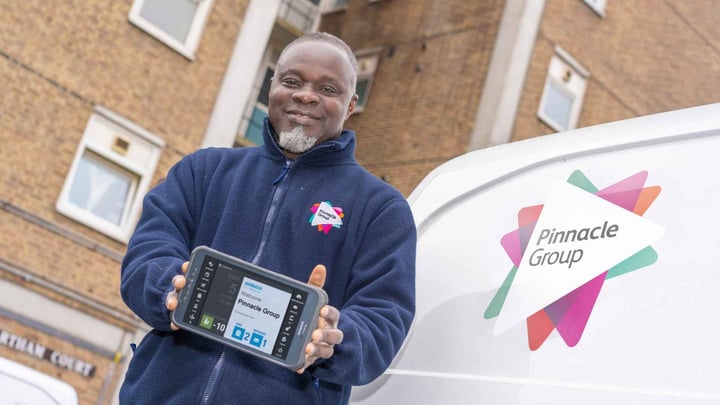
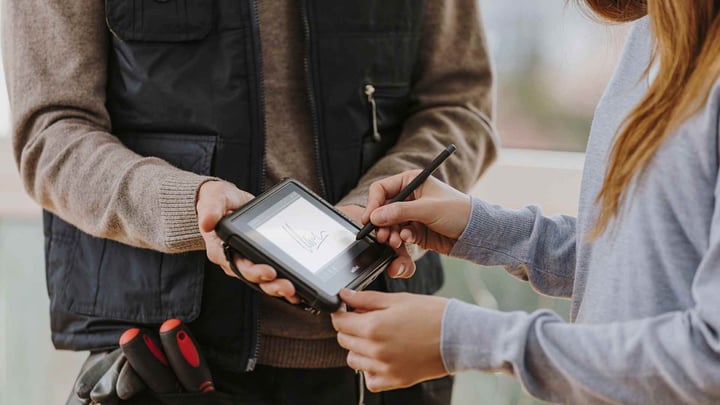
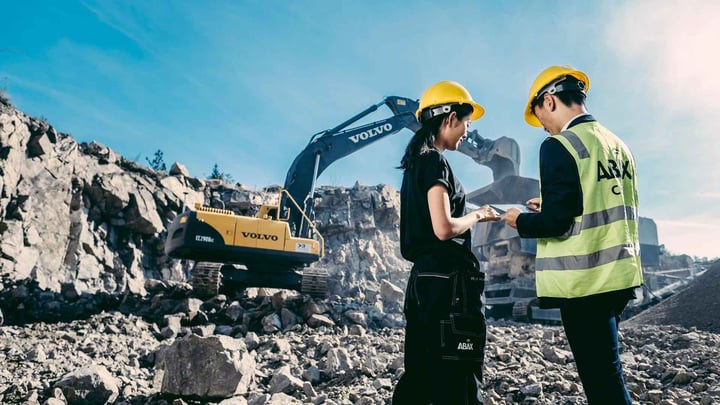
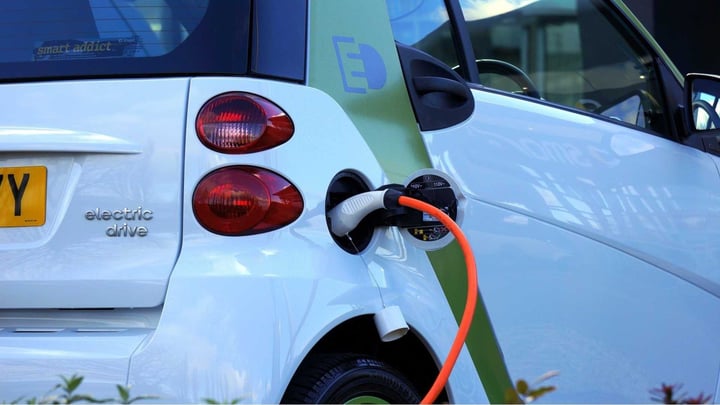
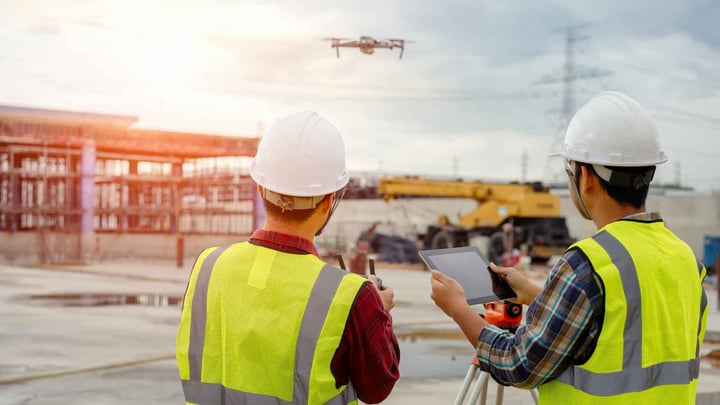


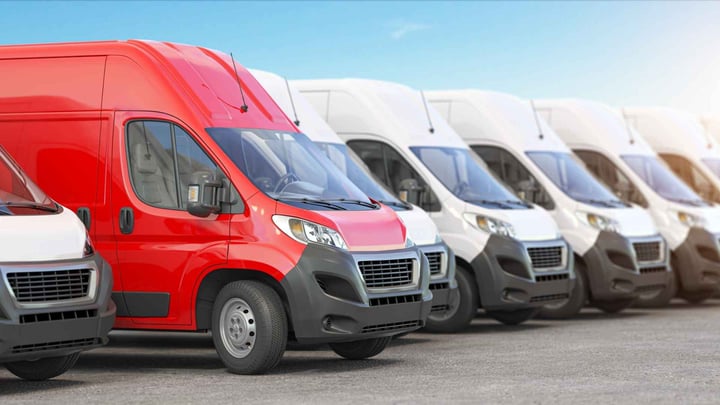








 Field Service News is published by 1927 Media Ltd, an independent publisher whose sole focus is on the field service sector. As such our entire resources are focused on helping drive the field service sector forwards and aiming to best serve our industry through honest, incisive and innovative media coverage of the global field service sector.
Field Service News is published by 1927 Media Ltd, an independent publisher whose sole focus is on the field service sector. As such our entire resources are focused on helping drive the field service sector forwards and aiming to best serve our industry through honest, incisive and innovative media coverage of the global field service sector.
Leave a Reply